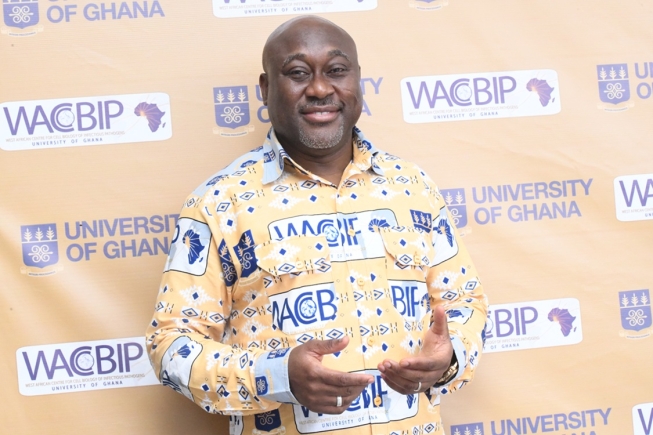Government should stop paying hundreds of thousands of dollars as scholarships for students to study in universities abroad, the Pro-Vice Chancellor for Academic and Student Affairs of the University of Ghana (UG), Professor Gordon Awandare, has said.
Instead, he said those funds should be rechannelled into the local universities which had better systems for identifying good and needy students to disburse those funds to them.
Prof. Awandare said this at the ninth in the series of a research conference organised by the West African Centre for Cell Biology of Infectious Pathogens (WACCBIP) of the University of Ghana yesterday.
Started in 2016, the research conference is a forum for fellows to share their research works, build partnerships and engage with policymakers.
This year’s conference, which was on the theme: “Evolving African Science from Capacity Building to Discovery and Impact”, attracted over 600 participants.
Recall
It will be recalled that in his national address on Wednesday, May 7, President John Dramani Mahama reaffirmed his government’s intention to introduce a legislation aimed at reforming the administration of government scholarships and barring political appointees from benefiting from them.
The move, he explained, was designed to eliminate political patronage and reduce corruption in the scholarship system, ensuring that opportunities were offered based on merit and genuine need.
The role of universities
"It doesn't make any sense.
The process has been corrupted and it's led to political favouritism and all that.
The universities have the best systems for identifying the most deserving students to award.
Why do we have bureaucrats awarding scholarships? Why is it in the hands of politicians? It's pointless.
“I think these things need to stop.
The universities have the systems for this.
This is our business," Professor Awandare said of the scholarship programme, adding that “if the government will commit to giving each university in the country a certain number of scholarships and allow us to use our systems to identify the students who are best placed to benefit from those, that would be good."
Besides, he added that the practice of sending people overseas to study on scholarship was instituted at a time the country did not have sufficient capacity to train the necessary manpower locally, but now “the country had gone way beyond that.”
“Currently, we have about 16 public universities. Many of them are well established and competitive globally, providing training that is comparable to what you get in many developed countries,” he said.
Centres of Excellence
Related to this, he said, were the World Bank African Centres of Excellence that were specifically set up in universities in Africa, including Ghana, to provide specialised training in areas that African governments deemed had gaps that needed to be filled in terms of manpower capacity.
Mentioning such centres to include basic science, mathematics, computer engineering and science, he questioned the justification in still awarding scholarships to people to study overseas after millions of dollars had been spent on those centres to build capacities locally.
He expressed the hope that the Scholarship Authority Bill that was currently before parliament would take on board some of these suggestions.
He also urged the government to take urgent steps to release those funds that were committed to the centres of excellence to allow them to continue operating.
On research funding in Africa, Prof. Awandare, who is also the Director of WACCBIP, said the cuts in funding by the American government, which had created global uncertainty in terms of science promotion and funding for science, was a reminder to African governments to re-prioritise their expenditure to support science and research, adding that all nations that had developed quickly were led by science and innovation.
Speaking on behalf of the Vice-Chancellor of the UG, the Pro-Vice Chancellor for Research, Innovation and Development, Professor Felix Ankomah Asante, who opened the conference, said the recently released Times Higher Education Interdisciplinary Science Ranking, which ranked the UG as the first in Ghana, second in West Africa and 187th in the world, out of 700 universities, confirmed the university’s growing footprint and commitment to solving complex societal challenges through innovative and cross-disciplinary research.
He said that success story could not be achieved without the impact of centres such as WACCBIP, adding that the university’s commitment to impactful research thrived on collaboration between academia and industry, government and African institutions and their global counterparts.
Research
The Provost of the College of Basic and Applied Sciences, Prof. Sandow Mark Yidana, said the millions of challenges confronting the world could only be addressed through cutting-edge research.
He, therefore, urged governments in Africa, including Ghana, to invest more in research.
The President of the Ghana Academy of Arts and Sciences, Emerita Professor Isabella Quakyi, said African institutions were witnessing a generation of African scientists who were not just participating in global sciences but were leading it.
She said from genomics to vaccine research, African-led research was unearthing solutions that were not only globally relevant but locally grounded.
“We are showing the world that the next scientific breakthroughs can and will emerge from Africa — Accra, Nairobi, Dakar, and beyond,” she added.

